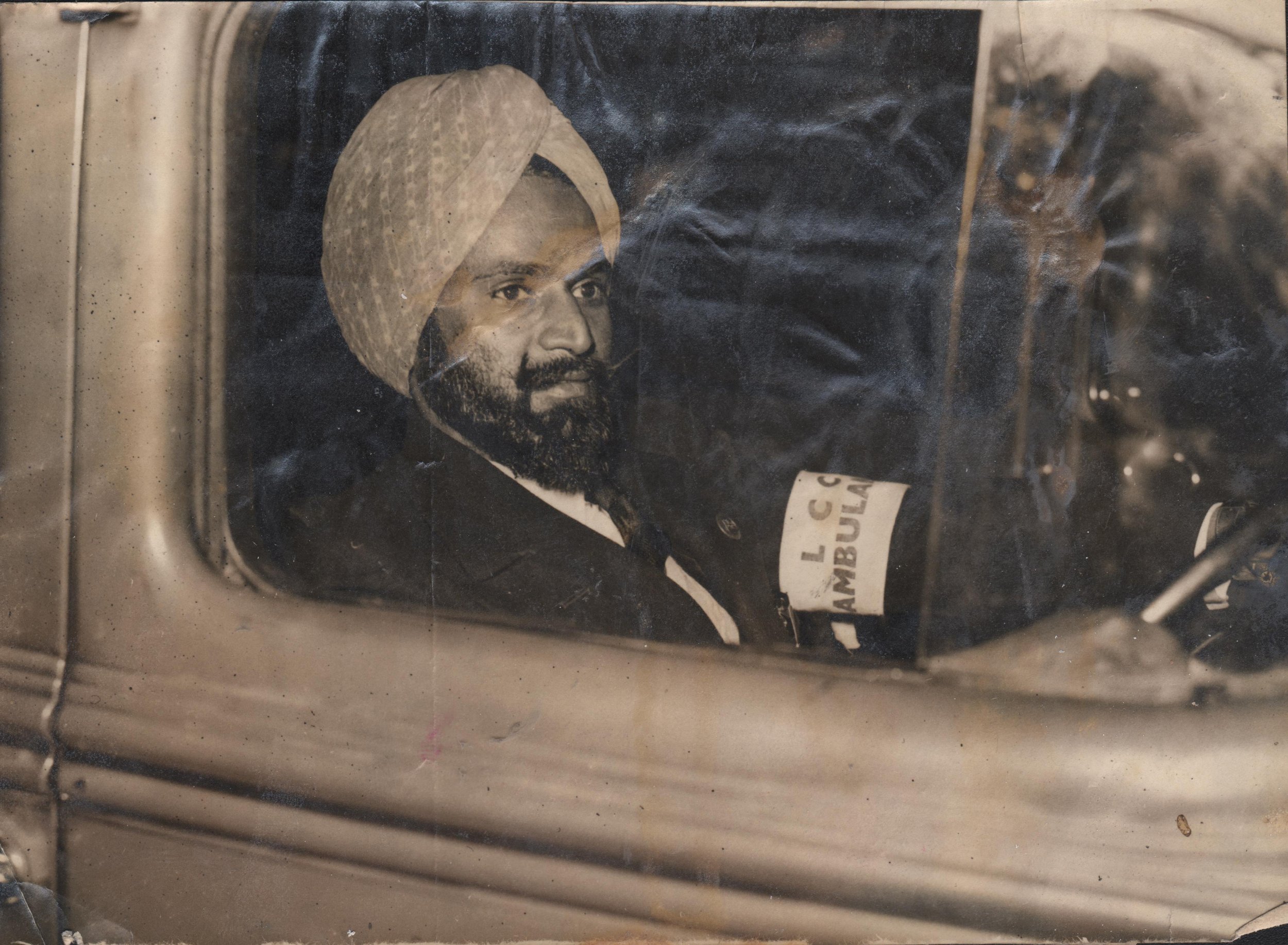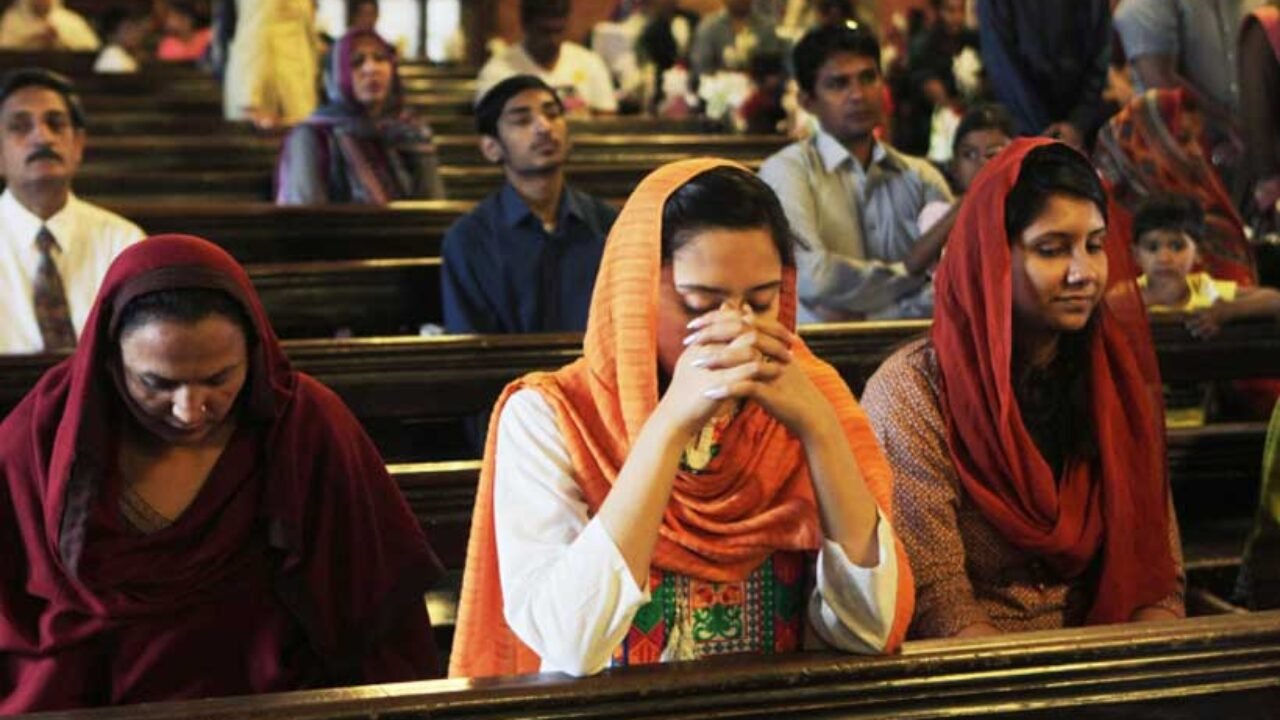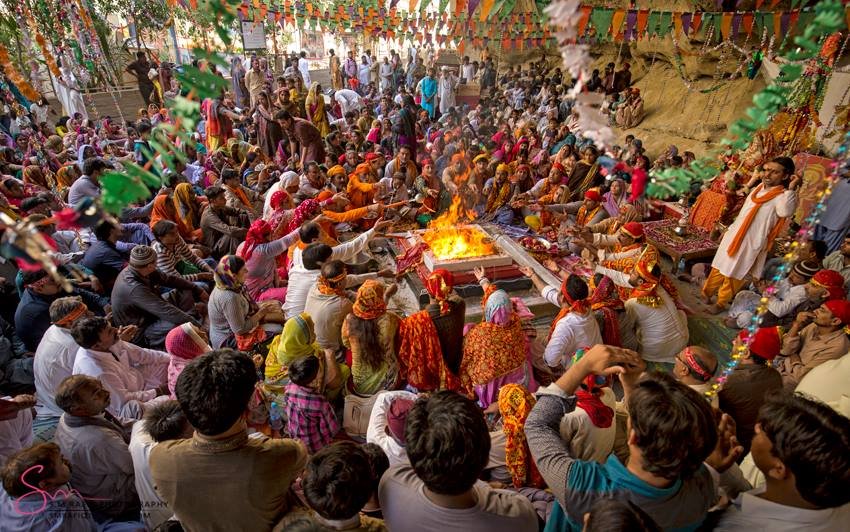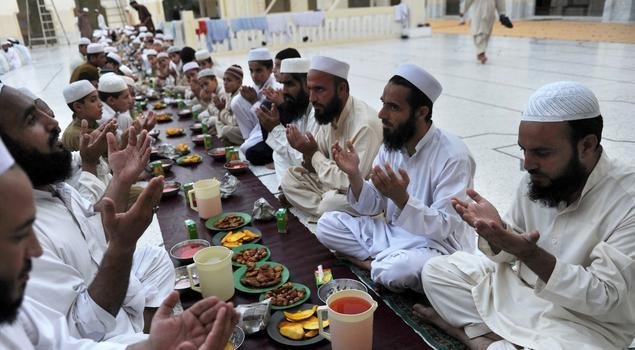A Discussion with The Citizens Archive of Pakistan
The Citizens Archive of Pakistan (CAP) is a nonprofit organization that documents and publicizes Pakistan’s unique and diverse cultural heritage. Founded in 2007 and based in Karachi and Lahore, CAP fulfills its mission by designing educational exhibits and outreach projects to promote and preserve knowledge and awareness of Pakistan’s history and culture. So far, CAP has served over 10,000 students in underdeveloped areas in Sindh and Punjab in partnership with local organizations.
APF Blog Writer Noah Usman interviewed members of the CAP team to learn more about the organization’s work. Below is his interview with Aaliyah Tayyebi, CAP Senior Project Manager, Aniqa Imran, CAP General Manager, and Mariam Alsikafi, Chair of The Citizens Archive of Pakistan in North America.
This interview has been edited for clarity, and serves as a companion to our webinar event.
Entrance to CAP’s Pop-Up Museum at Cantt Station, Karachi.
Visitor at the museum pictured above.
Noah Usman: WHY WAS CAP ESTABLISHED?
THE CITIZENS ARCHIVE OF PAKISTAN: The Citizens Archive was founded in 2007 by a group of concerned young people that were seeing the dreams with which Pakistan was created disappearing with the passing of older generations. They felt frustrated that archival material was not organized and that it was difficult for the vast majority of people to access. CAP’s founders also felt that educational curricula fell short of conveying the spirit and passion that active citizenship demands.
Well before the metaverse and NFTs, CAP set out to digitize and document first-hand accounts of those that had witnessed Partition, the effects of which ripple through each generation of South Asians. CAP’s flagship initiative, The Oral History Project, is a collection and study of historical information about individuals, families, important events, or everyday life, using audio recordings, video recordings, or collection of transcripts of planned interviews.
We converted these stories into multiple outreach formats, from workshops on gender equity and cultural and religious diversity in public schools, to exhibits in our own bricks and mortar National History Museum. We conducted programming all year long, both locally and also abroad.
“Allowing citizens to remember, discuss and learn about the partition is important because it helps us better understand the past and raises awareness of our modern cultural, social and political context. ”
A group of students viewing archival material as part of CAP’s School Outreach Tours.
NU: TELL US ABOUT CAP’s exhibit design process.
CAP: We see exhibitions as an opportunity to reflect on the different dimensions and perspectives of our collective history. Allowing citizens to remember, discuss and learn about the partition is important because it helps us better understand the past and raises awareness of our modern cultural, social and political context.
CAP lays emphasis on using interactive technology with the thought that when knowledge and information are displayed using interactive mediums, people are better able to retain material. A well-planned interactive display that combines elements of learning as well as fascination, therefore, works better with younger or barely literate populations in helping them process and remember.
Our design sensibilities are led by a deep reverence for, and an in-depth understanding of the material we have been archiving for over 15 years. Above all, we are keenly aware of the emotional impact and power of inclusive storytelling, our engagement with hidden or marginalized histories and being cognizant of the emotional impact of storytelling. We aim to preserve stories of our marginalized communities which are often left out of mainstream narratives, actively reaching out to minority groups within Pakistan such as Parsis, Hindus, Christians, Dawoodi Bohra, Ismaili, Sikhs, Bengali to name a few, to ensure that their experiences and eye-witness accounts are also reflected in the national discourse.
NU: What information does CAP prioritize in its exhibits and which audiences does it hope to engage?
Visitors at CAP’s ‘Tareekh 1947‘ exhibit, which features archival material related to Pakistan’s independence movement.
CAP: We believe history should be fun, educational and personal. We are driven by the idea that citizenship, responsibility and accountability are vital for us to grow as a society and as a nation. Our youth needs self-examination, critical thinking and dialogue to address the multitude of problems we face.
We began our work with a digital focus because we felt it was faster, low-cost, and more easily relatable for the younger audiences that we wanted to reach. Currently, CAP’s digital archive contains nearly 4,000 oral histories and over 400,000 digital photographs, documents, newspapers and ephemera.
As part of its ‘Dekho Pakistan‘ exhibition, CAP produced a train installation commemorating the journey of Indian Muslim refugees from Amritsar to Lahore.
Archives are also a gateway to understanding how our past informs our present. An example of our work can be seen in some of the episodes of the television show Ms. Marvel on Disney+. The show features scenes set in Karachi during the time of Partition. Led by Sharmeen Obaid-Chinoy, our patron-in-chief, CAP facilitated the re-creation of the look, feel, and experiences of the Partition.
A group of students attending one of CAP’s Book Clubs Across Borders.
In 2009, CAP initiated The School Outreach Tours across Karachi. The tours introduced Imagination Stations, a series of interactive activities that transported students back in time to experience life in Pakistan during the 1940s and 1950s. Through these school visits, we initiated a dialogue about Pakistan’s past and present utilizing photographs, letters, newspapers, and hours of Oral History Project interviews.
Our exchange programs offer a chance to reach regional audiences. In 2010, CAP launched the Exchange for Change pilot project which linked 12,000 students from schools in Delhi, Mumbai, Lahore, and Karachi over the next six years to develop an understanding of their shared history, culture and lifestyles. We have been running Exchange for Change USA since 2012, which has linked almost 1,000 students in Pakistan and the United States.
CAP’s Book Clubs Across Borders initiative expanded cross-border relationships by administering a 20-month virtual book club program connecting twelve cities in Pakistan with twelve cities in Afghanistan. The participants engaged in meaningful dialogues and cross-cultural interaction on themes such as leadership, youth empowerment, gender equality, identity, and diversity.
CAP has designed and developed a moving museum that travels to the people connecting communities in a way that promotes learning and peace-building. The Museum on Wheels operates provides access to diverse programming, as well as more inclusive exhibition design for a participatory experience.
Our National History Museum allows us to reach all kinds of audiences, including those coming from smaller villages on the outskirts of major cities. The museum offers an amphitheater, cinema, and virtual reality experiences, performances, and learning opportunities that revive Pakistan’s rich cultural heritage.
CAP’s first international partnership was with Google Cultural Institute showcased rare images of the 1947 partition and introduced diverse Pakistani trailblazers from all walks of life to a global audience.
NU: What long-term changes does CAP aspire to bring about in the public sphere?
CAP: We want to preserve the history of Pakistan, allowing for an honest and clear understanding of the problems our nation faces. We felt the need to address the great void in our own understanding of the journey our forefathers had made. We felt violence and the steady erosion of our society called for an examination and explanation of the ideals that led to the creation of Pakistan.
Our children deserve more than just school buildings and teachers, but truly interactive and engaging programming, curricula and festivals that instill pride and understanding. Through oral and video recordings, and photographs, we can offer a living and fluid archive detailing the vision and reality of Pakistan. From there we can begin to build educational materials tackling pressing issues such as minority rights, gender equity, tolerance, diversity, with the intention of fostering both critical and independent thinking.
NU: How can Pakistani Americans advance the CAP mission?
CAP: We know the power of passionate support, having started as a very small idea by a very small group of people that had big goals. We can use monetary and technical support as we look for ways to scale our archives and build out our educational products. In order to reach new audiences, and build relationships, we are always grateful for connections to educational and cultural institutions with whom we can build out events and exhibits.
We have a motivated and energized staff that is enthusiastic about finding the next, new and best way to encourage storytelling and sharing. If you have any out-of-the-box ideas in arts, culture, education: please reach out to us at citizensarchive@gmail.com! We appreciate anything from a call, a social media reshare, to an Amazon Smile donation with your purchases. This is a collective effort!





















